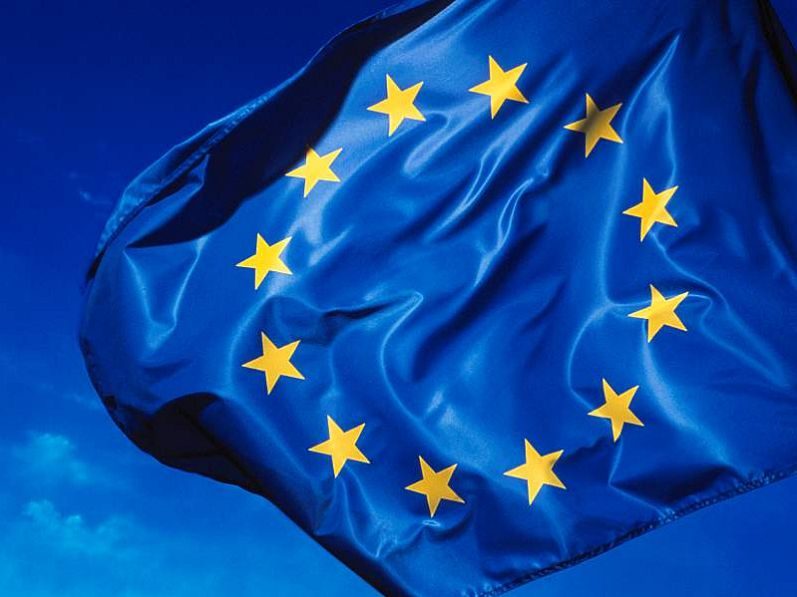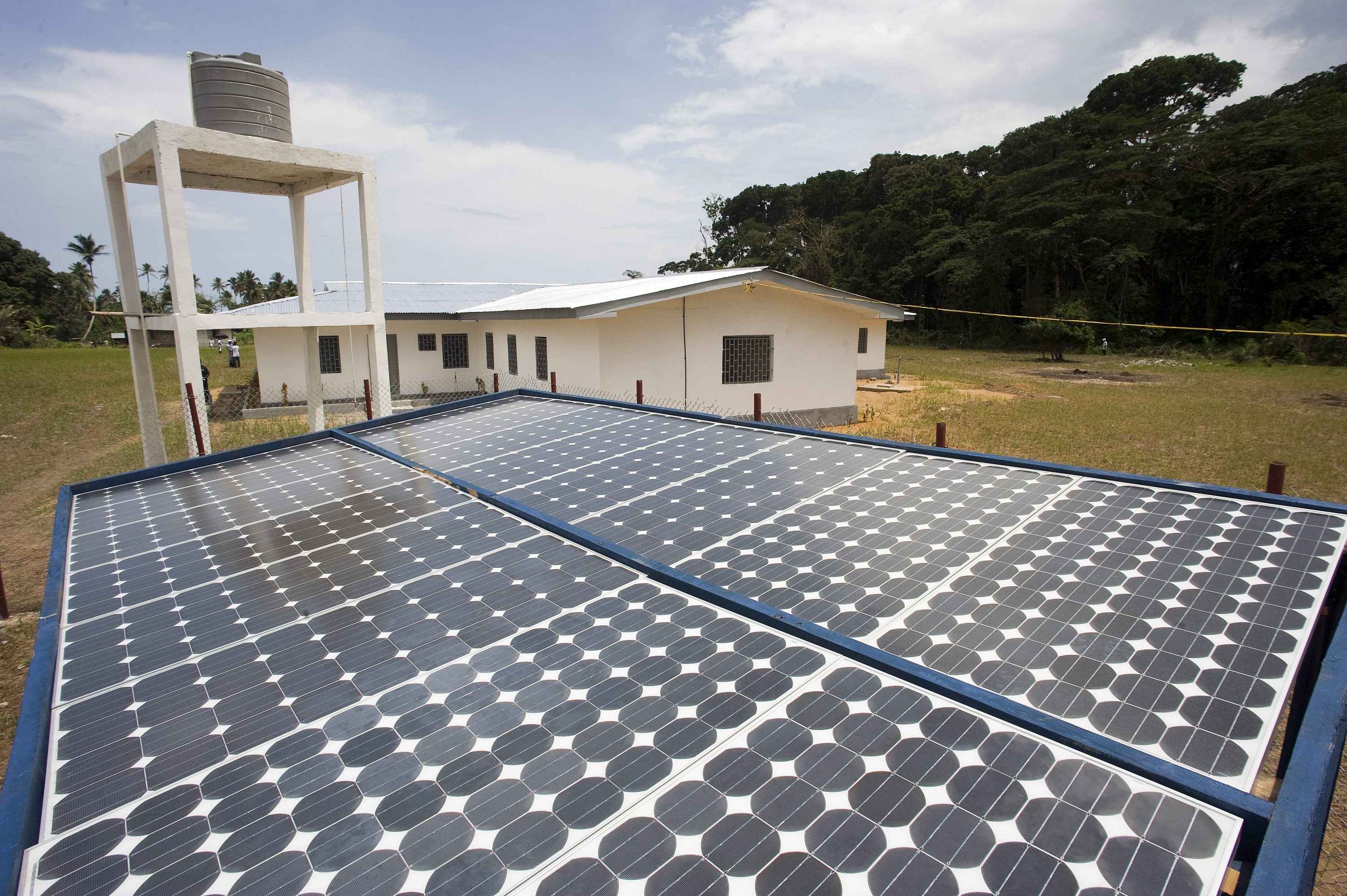In 2016 the European Union launched an ambitious new initiative: the External Investment Plan (EIP) and its new European Fund for Sustainable Development (EFSD). The EIP and the EFSD will support smart and sustainable investments in our partner countries, starting in the European Neighborhood and in Africa, and develop more effective partnerships that go beyond classical development assistance.
Promoting Sustainable Investments
The EIP is in line with the new European Consensus on Development, which intends to align the development policy of the EU and its Member States with the 2030 Agenda. The Sustainable Development Goals are indeed an important call for action.
The European Union was a valuable contributor to the development of the 2030 Agenda and shares the values that define the SDGs and absolutely supports its attainment. However, the EIP is a grand idea of partnership among equals: investments for the mutual interests of the parties pursuing SDGs.
 In the Photo: The European Union Flag – Photo Credit: Flickr/flickr.com
In the Photo: The European Union Flag – Photo Credit: Flickr/flickr.com
A key focus of the EU External Policy to achieve these Goals will be Africa. For that reason, the EU intends to reaffirm its partnership with the continent, notably with the upcoming EU-Africa Summit. We know that Africa will need to create 18 million new jobs every year, for the years to come. To respond to that challenge, we will enhance our cooperation with the region on key engines of sustainable development, with job creation and green economy as the main guiding principles.
The investment needs in many key sectors in Africa are immense. For instance, the funding gap for Small and Medium Enterprises (SMEs) in Sub-Saharan Africa, which are responsible for the large majority of jobs in the continent, is estimated by the International Finance Corporation at EUR 125 – 150 billion. In the area of climate change, adaptation costs are estimated in the range of EUR 18 – 27 billion per year over the next 10 to 20 years. Investment needs in the energy sector, including in renewable energy projects, are estimated at around EUR 35 billion per year. More investments are also required in the areas of agriculture and rural infrastructure, transport, social infrastructure, education, the digital agenda for Africa, as well as in water and sanitation.
Although these limitations exist for all companies, they affect in particular not only SMEs, but also young and female entrepreneurs, who are particularly vulnerable and relevant for the success of sustainable development.
In the Photo: Remote communities such as River Cess find it difficult to meet even basic power needs, with less than 2 percent of rural Liberia having access to electricity while it is hoped that solar energy will provide more long-term savings for the government of Liberia and the environment. Photo Credit: UN Photo/Christopher Herwig
However, traditional investments alone will not be enough to achieve sustainable development. At the same time, without specific support, private investments only go where conditions for profit are already in place, as the business community asks for a certain level of guarantees such as protection from financial, legal or security risks. Although these limitations exist for all companies, they affect in particular not only SMEs, but also young and female entrepreneurs, who are particularly vulnerable and relevant for the success of sustainable development.
One of our key missions should be to strengthen these investment directions and to de-risk these activities with financial incentives, smart financial engineering and, increasingly more important in our view, combining this with policy dialogue and engagement. For a simple reason: the EU is not only a major investor and one of the most generous donors but, above all, a reliable political partner, bringing shared values and principles in true partnership.
Such a combination of investment and a policy package that centres on sustainability, social stability and prosperity can spark inclusive development and inspire younger generations to build their communities in a climate of peace.
Related article: “TWO-SPEED EUROPE: THE WAY FORWARD?“
External Investment Plan
The External Investment Plan, with its initial focus in Africa, will be the primary engine to make that happen. It will be an essential element in the implementation of the SDGs, the Addis Action Agenda for financing development and for implementing the EU commitments made at COP 21.
The EIP provides, for the first time, an integrated approach to boosting investments in Africa and the Neighborhood, with a focus on leveraging additional private and public resources for sustainable development. The proposed EIP will be founded on three pillars:
Pillar 1
Under pillar 1, we are setting-up a new European Fund for Sustainable Development (EFSD) as a big host for investment proposals in Africa and the Neighborhood, with a new EFSD Guarantee Fund as a key innovative element. In particular, the ambition of the new EFSD Guarantee is to go beyond existing instruments, by supporting innovative private sector financing models developed by and in partnership with a range of partner financial institutions. We intend this to become a place where investors and institutional actors can meet to match investment opportunities with necessities. With the EFSD, more than EUR 44 billion of investments are expected to be leveraged until the year 2020.
Pillar 2
This will be complemented under pillar 2 by technical support to help local authorities and companies develop bankable projects and to improve the regulatory and policy environment in our partner countries. These technical assistance actions are already in place and now they will work also on these objectives.
A close link with the other two pillars is essential in order to provide a holistic approach to stimulating investments and creating jobs.
Pillar 3
Finally, pillar 3 will focus on improving the investment climate, by supporting structural reforms and good governance, through policy dialogue and cooperation, with strong involvement of our EU Delegations based in more than 60 African and EU Neighborhood countries. A close link with the other two pillars is essential in order to provide a holistic approach to stimulating investments and creating jobs. This will also include a friendly one stop shop for any enquiry, any proposal, any interaction of private actors interested to expand their activities in developing countries towards SDGs.
Investment to Attain the SDGs
The EIP is an all-encompassing Plan that will help the attainment of all SDGs.
In fact, one of its primary objectives is to contribute to the Sustainable Development Goals, in particular poverty eradication. But it is not just on poverty (SDG 1) that it will have an impact. Financing and investment operations will support certain objectives such as the promotion of economic and social development, decent job creation (SDG 8) or gender equality (SDG 5) and they should target sectors like public and private infrastructure (SDG 9) including sustainable energy (SDG 7), water (SDG 6), transport (SDG 11), environment (SDG 13), sustainable use of natural resources (SDG 15), agriculture (SDG 2) and blue growth (SDG 14), social infrastructure (SDG 11), health (SDG 3) or human capital (SDG 4).
Related article: “THE PARIS CLIMATE CONFERENCE AGREEMENT – WHAT NEXT?”
Climate change is also a key area (SDG 13) which the EIP intends to target. As a matter of fact, the EFSD regulation declares that a minimum of 20 percent of the funding allocated should be assigned to operations that contribute to the implementation of the Paris Agreement on Climate Change.
In setting up this Plan, the EU wants to deliver and offer a response to real problems. In addition to sustainable development and climate change, one of the issues that the EIP will focus on will be migration by addressing its root causes.
The recognition of the close link between migration and development in the 2030 Agenda on Sustainable Development is crucial. This recognition gives new impetus and momentum to the need for development actors to engage on migration and mobility issues with partner countries. Therefore, EU development cooperation plays a key role to address both the challenges – and the opportunities – that migration brings.
 In the Photo: “Financing and investment operations will support certain objectives such as the promotion of economic and social development, [such as] decent job creation.” Photo Credit: Flickr/flickr.com
In the Photo: “Financing and investment operations will support certain objectives such as the promotion of economic and social development, [such as] decent job creation.” Photo Credit: Flickr/flickr.com
At the same time, the links between migration, forced displacement and development are complex and therefore require carefully crafted and tailor-made development responses from country to country and context to context.
By creating the enabling conditions for more investments with the combination of public and private resources and by creating decent jobs, the EIP wants to address some of the challenges that make a large number of people want to migrate.
By enabling people to achieve a sustained development at home, we are helping them have access to a better life without having to go over the life-risking process of migration.
Providing Better Opportunities
The EIP is thus an instrument that is in line with the UN’s Sustainable Development Goals. It aims for the reduction of poverty, gender equality, increased access to energy, decent job creation, industrialization, innovation and combating climate change, among others.
It will require a substantial paradigm shift in the way development cooperation specialists do their business.
It builds on the successful implementation of previous initiatives and takes into account the lessons learned from successfully implementing blended finance operations over the past 10 years. It is a Plan structured in a flexible but comprehensive way, promoting sustainable investments linked with technical assistance and policy dialogue.
The External Investment Plan has the purpose of providing more and better opportunities and deepening our cooperation and partnerships, notably in Africa, with a view to meeting the challenge set on us by the 2030 Agenda. It will require a substantial paradigm shift in the way development cooperation specialists do their business.
Recommended reading: “MERKEL OPENS ATTACK ON ELECTION CHALLENGER OVER ECONOMIC POLICY”














